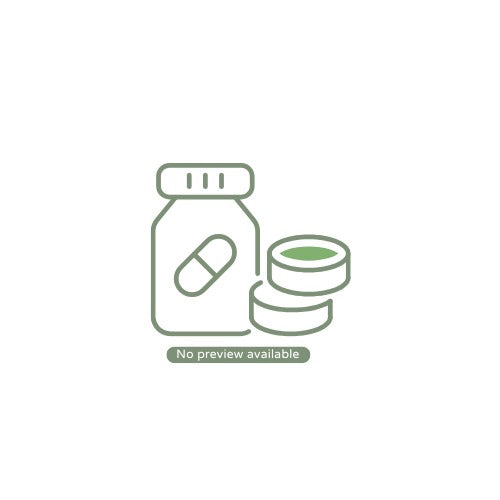LARIAM (Mefloquine)
Reliable shipping
Flexible returns

LARIAM, which contains the active ingredient Mefloquine, is a medication primarily used for the prevention and treatment of malaria. It is especially effective against the Plasmodium falciparum strain, which is known for its resistance to other antimalarial drugs.
Here are some key highlights about LARIAM:
- Indications: LARIAM is indicated for both the prevention and treatment of malaria in adults and children over the age of 5. It is particularly recommended for travelers visiting areas where malaria is prevalent.
- Dosage: For malaria prevention, it is typically taken once a week, starting 1-2 weeks before travel, during the trip, and continuing for 4 weeks after returning.
- Mechanism of Action: Mefloquine works by interfering with the growth of parasites in the red blood cells of the human host, effectively preventing the development of malaria symptoms.
- Side Effects: Common side effects may include dizziness, nausea, and sleep disturbances. In rare cases, more serious side effects such as neuropsychiatric reactions can occur.
- Contraindications: LARIAM should not be used in individuals with a history of seizures, certain psychiatric disorders, or those with hypersensitivity to Mefloquine.
- Drug Interactions: Patients should inform their healthcare provider about all medications they are taking, as LARIAM can interact with other drugs, potentially affecting their efficacy and safety.
- Precautions: It is crucial for patients to follow their healthcare provider’s instructions closely and to complete the full course of treatment to ensure the effectiveness of the medication and reduce the risk of developing resistance.
Overall, LARIAM is a vital tool in malaria prevention and treatment, offering effective protection for individuals traveling to endemic areas. Always consult with a healthcare professional before starting LARIAM to ensure it is the right choice for your situation.
- Mefloquine hydrochloride
- Microcrystalline cellulose
- Magnesium stearate
- Colloidal silicon dioxide
- Sodium starch glycolate
LARIAM (Mefloquine) is an antimalarial medication used to prevent and treat malaria. To ensure its effectiveness and safety, follow these detailed instructions for use:
- Consult Your Healthcare Provider: Before starting LARIAM, speak with your doctor to determine if it is appropriate for you. Discuss any medical conditions and medications you are currently taking.
- Dosage: Follow the prescribed dosage exactly as directed by your healthcare provider. Typically, LARIAM is taken once a week for prevention and daily for treatment.
- Timing: For prevention, begin taking LARIAM at least one week before traveling to a malaria-risk area. Continue for four weeks after leaving the area. For treatment, take as directed by your doctor.
- Administration: Take LARIAM with a full glass of water. It can be taken with or without food, but taking it with food may help reduce gastrointestinal discomfort.
- Missed Dose: If you miss a dose, take it as soon as you remember. If it is almost time for your next dose, skip the missed dose and resume your regular schedule. Do not double the dose to catch up.
- Possible Side Effects: Be aware of potential side effects, which may include dizziness, nausea, or sleep disturbances. Contact your doctor if you experience severe side effects or signs of an allergic reaction.
- Storage: Store LARIAM at room temperature, away from moisture and heat. Keep out of reach of children and do not use past the expiration date.
- Regular Check-ups: Schedule follow-up appointments with your healthcare provider to monitor your health and the effectiveness of the treatment.
Adhering to these instructions will help ensure that LARIAM is used safely and effectively. Always prioritize communication with your healthcare provider regarding any concerns or questions about your treatment.